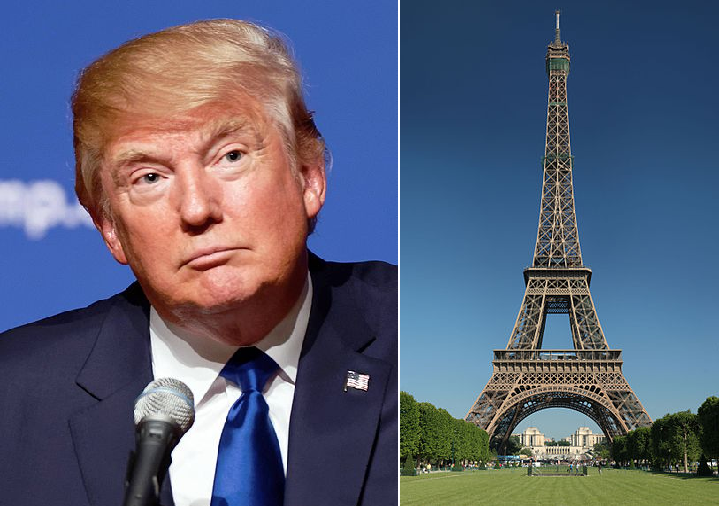The annual business meeting of the parties to the United Nations Framework Convention on Climate Change (UNFCCC), the 22d such Conference of the Parties (COP 22), just concluded in Marrakech, Morocco. At the top of the agenda was implementation of the Paris Agreement, which entered into force November 4, 2016, just days before the COP opened and the U.S. election. The latter apparently shifted the focus of hallway conversations as President-elect Donald Trump’s views on climate change and climate treaties were of great interest to participants and observers.
During the campaign, candidate Trump said, “I will be looking at [the Paris Agreement] very, very seriously, and at a minimum I will be renegotiating those agreements, at a minimum. And at a maximum I may do something else." And “We’re going to cancel the Paris Climate Agreement and stop all payments of U.S. tax dollars to U.N. global warming programs.” The President-elect’s 100-day action plan does not mention canceling or renegotiating the Paris Agreement and in recent comments he has said he has an open mind to the Agreement.
But what actions will President-elect Trump be able to take on the Paris Agreement specifically and on climate change generally, and what processes must he follow? President Obama accepted the Paris Agreement as an executive agreement, which is under his independent constitutional authority. Such international agreements are not submitted to the Senate, but they are considered treaties under international law. In contrast, the UNFCCC was approved by the Senate. In ratifying the Paris Agreement as an executive agreement, Obama was following long-standing practice by presidents of both parties.
 |
|
Photos by Michael Vadon (Trump) and Benh Lieu Song (Eiffel Tower) |
The procedure for withdrawing from a treaty under U.S. law is unclear. The Constitution is silent, referring only to the President’s power to make treaties by and with the advice and consent of the Senate. According to the Congressional Research Service (CRS), treaties have been terminated in a variety of ways, including by the president following a joint resolution of Congress, by the president following action by the Senate, by the president—with subsequent congressional or Senate approval, and by the president alone. The general rule, however, is that international agreements are to be amended, which includes termination, in the same manner that they were made. This suggests that the president could terminate the Paris Agreement unilaterally, but that he would need to obtain the advice and consent of the Senate in order to withdraw from the UNFCCC. The CRS explains that this process guards against unilateral executive branch action that might otherwise change a basic obligation agreed to by the Senate in its advice and consent to a treaty.
If President-elect Trump decides to formally withdraw from the Paris Agreement, his decision would not be effective until after the next presidential election. Why? The Paris Agreement allows a party to withdraw by providing written notice, but it must wait to send such a notice until three years after the Agreement enters into force. Even then, the withdrawal will not be effective until one year after the notice is received by the proper office. Here, the United States is a party to the Agreement, having submitted its acceptance of the Paris Agreement to the official UNFCCC depository on September 3, 2016. The Agreement itself entered into force on November 4, 2016. As such, if President-elect Trump opted to formally withdraw, his decision would not go into effect until November 5, 2020, two days after the next presidential election.
Alternatively, if a party withdraws from the UNFCCC, it is considered to have withdrawn from the Paris Agreement as well. On his very first day in office, therefore, President Trump could take action to withdraw from the UNFCCC, thereby withdrawing the United States from the Paris Agreement. Precedent exists for unilateral withdrawal from a Senate-approved treaty, but such actions have been rare and controversial. Were President Trump to do so, it would surely raise objections in the Senate of failing to follow constitutional procedure.
Last, President-elect Trump could simply ignore the “nationally determined contribution” to climate mitigation submitted by the Obama Administration. Since the Paris Agreement contains no enforcement mechanism, there would be no formal international consequence if the United States failed to meet its commitment.
The Marrakech COP concluded with the parties agreeing to move forward with implementation of the Agreement regardless of what the United States does. If the President-elect withdraws from the Paris Agreement or the UNFCCC, or simply ignores U.S. commitments, this would undoubtedly have negative consequences for U.S.-international relations—not just on environmental issues, but on other issues as well. Most significant, however, could be the negative consequences for our planet, particularly if the President-elect follows through on his other campaign promises, such as an increase in the use of coal. Stay tuned.
For additional reading on this topic, see Trump's First 100 Days: Climate and Energy, by Annie Sneed (Scientific American Nov. 29, 2016).
